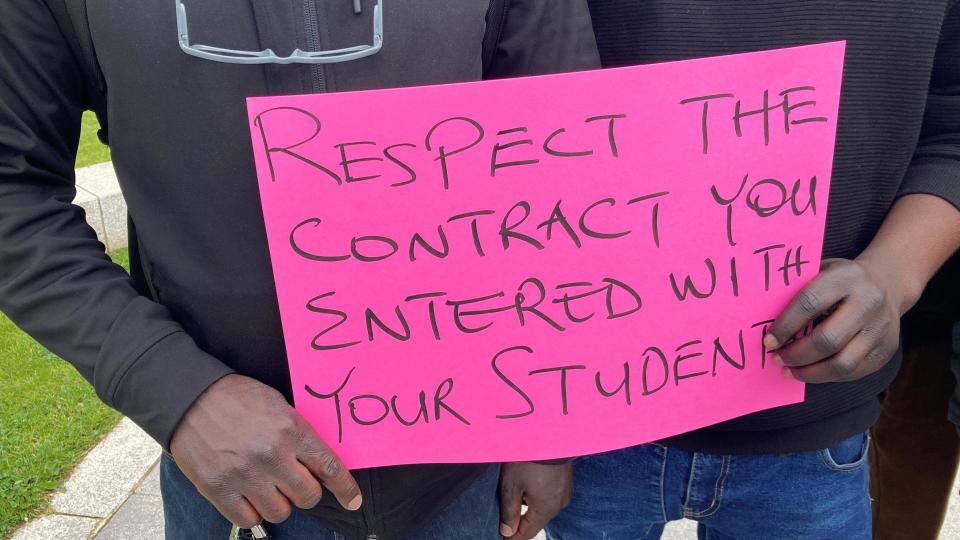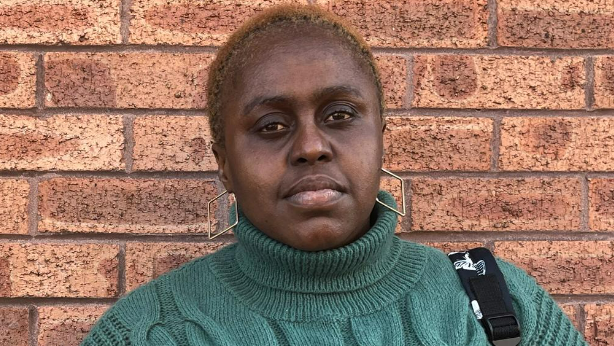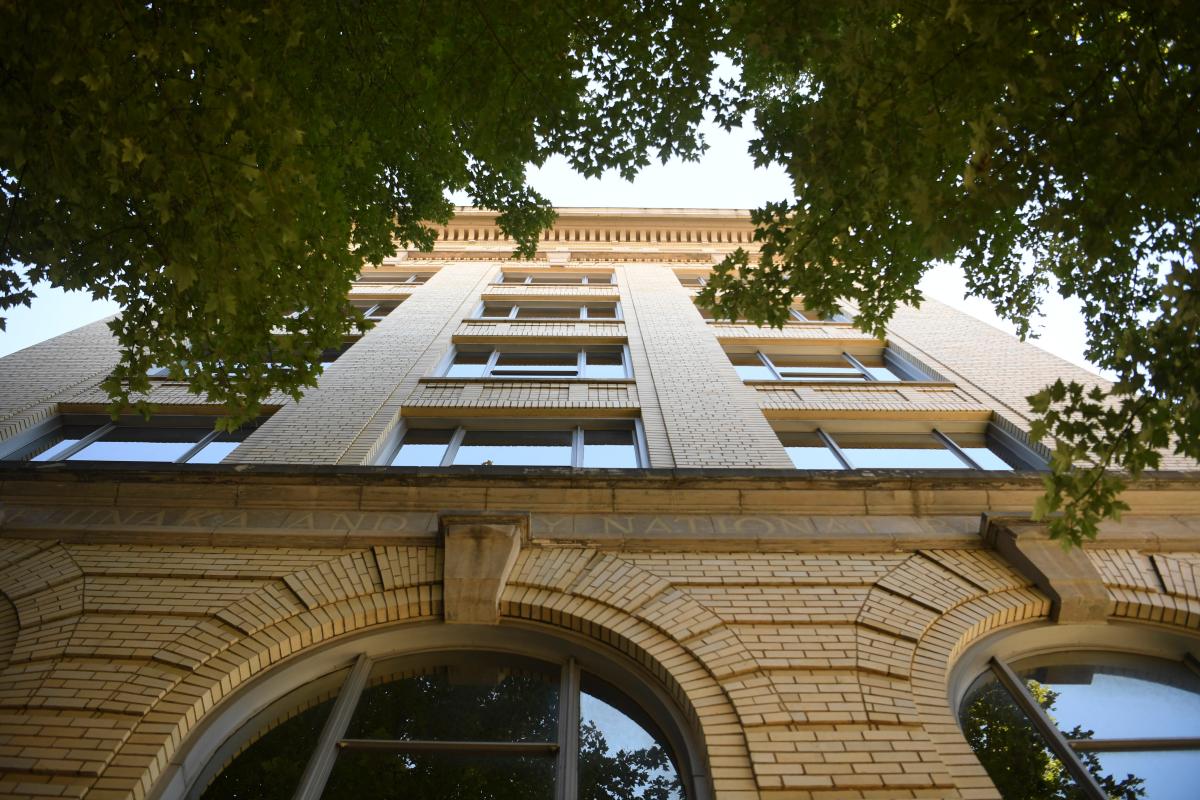Nigerian students have been expelled from university courses and ordered to leave Britain after a currency crisis left them struggling to pay tuition fees on time.
Teesside University students were banned from their studies and reported to the Home Office after the value of the Nigerian naira plummeted, wiping out their savings.
Some told the BBC they felt suicidal as they accused the university of taking a “heartless” approach to those who faced payment arrears as a result.
A university spokesperson said the failure to pay breached visa sponsorship requirements, and there was “no choice” but to alert the Home Office. The Home Office said decisions on visa sponsorship lay with the institution.
Nigeria is currently experiencing its worst economic crisis in a generation, which is significantly impacting Nigerian students at some British universities.
The average inflation rate is almost 34%, and the situation worsened when the country’s president tried to replace the old currency with a new one.
The currency subsequently fell in value by more than 100% against the dollar in one year.

Before starting their studies on Teesside, affected students were told they had to prove they had sufficient funds to cover tuition fees and living costs.
However, these funds were significantly depleted due to the crisis in their home country.
This exacerbated the financial difficulties students were already facing as a result of the university changing its tuition payment arrangements from seven to three instalments.
A group of students, 60 of whom shared their names with the BBC, began pressing the university for support after a number of people who could not make their payments were frozen from university accounts and involuntarily withdrawn from their courses.
Some have also reportedly been contacted by collection agencies contracted by the university.


Adenike Ibrahim was about to hand in her dissertation at the end of two years of study when she missed one payment, following which she was withdrawn from her course and reported to the Ministry of Home Affairs.
She then paid the outstanding fees, but said she was not re-registered and was told to leave the country with her son.
“I was at fault [on payments]but I had already paid 90% of my tuition and I went to all my classes,” she said.
“I called them and asked them to come to an agreement, but they don’t care what happens to their students.”
She said the experience was ‘terrible’ and she did not know what happened to her qualification.
“It was especially heartbreaking for my son. He has been in so much distress since I told him,” Ms Ibrahim added.
No right of appeal
The Home Office told students, including Ms Ibrahim, that their permission to enter Britain had been withdrawn because they had stopped studying at university.
The letters, seen by the BBC, offer a date for the student to leave the country and say he has no “right of appeal or administrative review against the decision”.
Since receiving his letter, a master’s student – who did not want to be named – said he had seriously considered suicide and was not eating or drinking.
The university said it had made “every effort” to support affected students, who were now offered individual meetings with specialist staff and tailor-made payment plans if requested.


Esther Obigwe said she repeatedly tried to talk to the university about her financial problems but received no response until she too was blocked from her studies and given notices to leave the country.
“I have attended all my classes and seminars, I am an incredibly active student,” she said.
“It’s discouraging, I’m on antidepressants now and because I’m here alone I have no one to talk to.
“I have barely eaten or slept for over two months and I don’t understand why we are being blamed for this. We have done nothing wrong.”
She added that most students had “spent a lot of money to be here”.


Jude Salubi, who was studying to become a social worker, was halfway through an internship when he was told his university access had been suspended and he would have to leave the country.
Before that, he traveled from Teesside to Liverpool every weekend working 18 hours in an attempt to pay off outstanding fees.
“At this point I have paid £14,000 and have a balance of £14,000,” he said.
“I am willing to reach an agreement on how I will make this payment, but I need guarantees that I will be re-enrolled in school and that my visa will be reinstated.”
Some affected students have managed to pay off outstanding tuition fees, but the university is now unable to intervene in the Home Office’s process, the BBC understands.
A university spokesperson said: “Teesside University is proud to be a global institution with a diverse student population, but is also very aware of its obligations in relation to visa issuance and compliance.
“These strict external regulations ensure that the University fully supports a robust immigration system and is outside the control of the University.”
The spokesperson added that it was “aware of the challenging financial situation some students face” and had “actively offered tailored payment plans where appropriate”.
“This option has been adopted by many of our international students, but some students are still in default on these revised payment plans,” he said.
The Home Office said the decision to offer or withdraw visa sponsorship lay with the sponsoring institution.
A spokesperson said that wherever a visa is shortened or cancelled, individuals should “take steps to regularize their stay or make arrangements to leave the UK”.
Follow BBC Tees on X (formerly Twitter), Facebook And Instagram. Send your story ideas to northeastandcumbria@bbc.co.uk.







